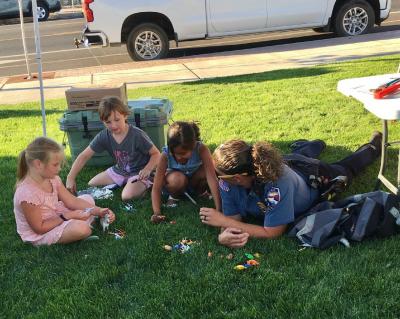-
Community
-
Column 1
- About
- History
- Chamber of Commerce
- Umatilla Museum
- Quarterly Newsletter
- Events and Activities
- City Calendar
- Library Events
- Parks & Recreation Happenings
Column 2
- Recreational Opportunities
- Umatilla Marina & RV Park
- US Army Corps of Engineers - McNary Beach Park
- Umatilla City Parks
- Library
- About Us
- Book Recommendations & News
- Digital Exhibits
- Online Resources
- Kids Corner
Column 3
- Schools
- Umatilla School District
- BMCC
- Public Safety
- Police
- Fire
- Cemetery
- Sunset Hills
- Pioneer Memorial
- Home Builders
-
-
Business
-
Column 1
- Forms and Permits
- Business Resources & Links
- Business License Application
- Community Development
- Travel Oregon
- Port of Umatilla
- Umatilla County Economic Development
Column 3
-
-
Government
-
Column 1
- Boards and Committees
- City Council
- 2023 - 2025 City Council Goals
- 2023 - 2025 Council Policies & Procedures
- OLD Agendas and Minutes
- NEW Agendas and Minutes
- City Council Recaps
- Public Records
- Press Releases
Column 2
- Departments
- Administration
- Community Development
- Building
- Finance
- Human Resources
- City Recorder
- Municipal Court
Column 3
-
-
How Do I?
-
Column 1
- View Current Job Opportunities
- Events and Meetings
- View OLD Agendas and Minutes
- View NEW Agendas and Minutes
- View City Calendar
- View Current Code of Ordinances
- View Staff Directory
Column 2
- Contact the City
- Question or Comment
- Code Enforcement Complaint
- Public Records Request
- Police Records Request
- Public Works Service Request
- Subscribe Newsletters
- Subscribe Meetings
- Documents and Forms
- Find Documents and Reports
- Print or Submit Forms and Applications
Column 3
- Pay My
- Utility Bill
- Court Fine
- Planning Application Fees
- Apply For
- Board Vacancies
- Business Licenses
- New Utility Services
- Community Engagement Group
- Community Development Grants
Column 4
-
Community Oriented Policing
“Community policing is a philosophy that promotes organizational strategies that support the systemic use of partnerships and problem-solving techniques to proactively address the immediate conditions that give rise to public safety issues as crime, social disorder, and fear of crime.” – Department of Justice, Community Oriented Policing Services.
Community-oriented policing (COP) prioritizes collaborative problem-solving, proactive engagement, and tailored responses to local concerns.
Several key components make up community-oriented policing:
- Community Partnership: Police officers work closely with residents, businesses, community groups, and other stakeholders to address issues collectively. This partnership fosters trust, enhances communication, and promotes mutual understanding.
- Problem-Solving: Rather than simply responding to calls for service, officers collaborate with community members to identify underlying issues contributing to crime and disorder. Together, they develop strategies to address these root causes and prevent future problems.
- Decentralized Decision-Making: Community-oriented policing encourages officers to have a more autonomous role in decision-making. This allows them to tailor responses to local needs and prioritize, rather than adhering strictly to centralized policies.
- Proactive Engagement: Police officers engage in proactive activities such as foot patrols, community meetings, and outreach events to build relationships with community members. This visibility helps to deter crime and foster a sense of security.
- Education and Empowerment: COP emphasizes educating community members about crime prevention strategies and empowering them to take an active role in enhancing public safety. This may involve providing training, resources, and support initiates like neighborhood watch programs.
Community-oriented policing is important for several reasons:
- Trust and Legitimacy: By engaging with communities in a collaborative manner, police departments can build trust and legitimacy. When residents feel respected and included in the decision-making process, they are more likely to cooperate with law enforcement and report crimes.
- Crime Prevention: COP strategies focus on addressing underlying issues that contribute to crime, such as poverty, substance abuse, and lack of social services. By addressing these root causes and working proactively to prevent crime, police can create safer communities.
- Improved Quality of Life: COP efforts often result in tangible improvements in the quality of life for residents. By addressing issues like graffiti, loitering, and abandoned properties, people can create environments that are more pleasant and conducive to community well-being.
- Efficiency and Effectiveness: Community-oriented policing encourages a more efficient and effective use of resources by targeting the root causes of crime and disorder. By working collaboratively with community leaders, police can leverage local knowledge and expertise to develop tailored solutions.
- Conflict Resolution: By fostering positive relationships between police and community members, COP can help prevent conflicts and reduce the likelihood of confrontations of use of force incidents.
Overall, community-oriented policing represents a shift toward a more holistic and community-centered approach to law enforcement that prioritizes collaboration, problem-solving, and prevention. By working together with communities, police departments can create safer, more resilient neighborhoods where everyone can thrive.

